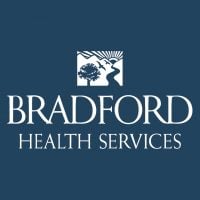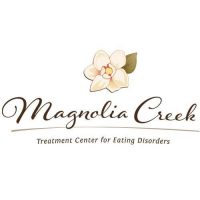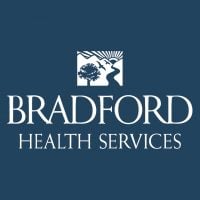Rivers of Hope
Drug Rehab Center in Prattville, Alabama
- Opioid Addiction
- Dual Diagnosis
- Drug Addiction
- Alcoholism
Rivers of Hope in Prattville, Alabama provides addiction recovery and treatment services, tailoring treatment plans to meet the unique needs of each individual and offering a range of services including counseling, family therapy, aftercare programs, intervention, education, prevention, and public advocacy, as they work to end the stigma of addiction and restore families and communities in Alabama.
Multiple patients have reported Rivers of Hope as permanently closed.
Research other rehabs in Prattville, Alabama, or get help finding an open facility.
Our experts will find you an alternative facility.
(888) 674-0062 24/7 Free, Confidential, Expert HotlineAbout Rivers of Hope in Alabama
Rivers of Hope in Prattville, Alabama is a nonprofit organization dedicated to providing a variety of addiction recovery and treatment services. This organization is committed to helping individuals, families, and communities affected by addiction by providing quality care and support that will lead to lasting recovery. Rivers of Hope’s ultimate mission is to end the stigma of addiction, transform individuals, and restore families and communities in many counties throughout Alabama.
Rivers of Hope offers services that address the physical, psychological, and spiritual needs of individuals struggling with addiction and substance abuse. Treatment plans are tailored to meet the unique needs of each individual, and they provide comprehensive services in both inpatient and outpatient settings. In addition to providing addiction recovery services, Rivers of Hope also offers counseling and behavioral health services, family therapy, and aftercare programs. Moreover, they also offer services in intervention, education, prevention, and public advocacy.
Rivers of Hope is an accredited, licensed, and CARF-accredited organization. The staff at Rivers of Hope is comprised of multidisciplinary professionals with a wide range of expertise in addictions, mental health, and other areas of behavioral health. They have also been the recipients of numerous awards, including the 2018 Excellence in Service Award and the 2019 Outstanding Achievement in Addiction Services Award. Additionally, Rivers of Hope has a unique program that provides addiction recovery support through equine-assisted therapy. Through this program, individuals struggling with addiction are able to learn life skills, trust, and resilience while working with horses.
Genders
Ages
Modality
Additional
Conditions and Issues Treated
Opioid addiction treatment should be done in a medically supervised drug rehab. While taking opioids, users will typically use other substances to enhance the effects of opioids or to reduce the adverse effects of opioid use. Opioid addiction treatment will include detoxification and drug rehab counseling to help both the user and their loved ones learn how to live a successful sober lifestyle.
Treatments such as methadone, buprenorphine, and naltrexone are three medications that can help treat opioid addiction. These drugs work on the brain’s pleasure center and reduce cravings and the effects of illicit opioids such as heroin. These drugs can be either given orally or by injection. Individual drug rehab counseling sessions can be helpful to discuss any questions or concerns with the drug treatment program. This counseling will also help the user set goals for when they finish drug rehab.
Opioid addiction recovery is a long process. Many of the changes to the brain caused by opioid use cannot be undone, but with time and the proper treatment, a person can return to normal function. After detox, treatment will include drug rehab counseling and entering a halfway house or sober living community. Aftercare is critical to long-term recovery, as it helps the user avoid relapsing and entering back into drug rehab.
Levels of Care Offered
This center offers a variety of custom treatment tailored to individual recovery. Currently available are Aftercare Support, Drug Rehab, Outpatient, with additional therapies available as listed below.
“Outpatient treatment is ideal for those who have a lower intensity addiction. It’s also suitable for those with a supportive environment and those on a tight budget.
Outpatient treatment can be considered the lowest intensity level of addiction treatment. It is ideal for early phase addiction or lower intensity addictions. It may involve weekly sessions instead of daily. Peer group support, 12-step programs, and individual counseling may still be used and anti-addiction medication.
Aftercare support is vital to those who have completed a drug or alcohol treatment program. This support comes in individual and family counseling, treatment of psychiatric and other medical conditions, and medications to reduce cravings. It helps recovering addicts adjust to normal day-to-day activities and can last for a year or longer.
The majority of drug and alcohol addicts who receive aftercare treatment do not relapse. It is estimated that without aftercare, the relapse rate will be between 70 to 90 percent for most people. Aftercare is the final stage in addiction recovery, but it will also help maintain sobriety if relapse does occur.
Therapies & Programs
No single treatment works for all addicts; therefore, the goal of treatment and therapy should be to find what works best for each individual. Some people requiring addiction treatment may only need a few weeks of inpatient care. Others will require long-term residential care. Tolerance and withdrawal levels vary from person to person and thus affect the intensity of the treatment needed.
If an individualized approach to treatment and therapy is not offered, addicts may fail to reap benefits from their efforts. Professionals must customize plans according to their patient’s needs, limitations, and strengths. The goal of all forms of addiction treatment should be for addicts to find healthy ways to cope with their addiction and its underlying causes.
Couples therapy for drug addiction is a unique form of therapy that allows family members to work through the emotional issues of their loved one’s addiction together. Family members can support each other while learning how to cope with the addiction and encourage healthy changes.
Accordingly, couples therapy for drug addiction is designed for an addict and their significant other or spouse. The two will work with a therapist to learn how the addiction affects themselves and the relationship and how to break the negative patterns of behavior that may have developed.
Drug addiction can destroy a person’s life, as well as their family and friends. The loss of one’s ability to choose how to live and behave often leads the addict into depression, anger, guilt, and many emotional problems.
The therapies usually include siblings, children, and parents who are involved in their daily lives. These sessions are vital because they address past issues that may have hampered an addict’s or alcoholic’s recovery and provide support at a crucial time!
One of the most critical aspects of family therapy is helping addicts’ loved ones see their situation in a new light. It’s also one of the most challenging things a family can do when a loved one struggles with addiction or alcoholism.
Group therapy is held in a safe, controlled setting where patients can feel comfortable sharing their struggles and gaining perspective through shared conversations. It takes place in a group rather than one on one to prevent feelings of isolation or being unique in their situation while creating an environment for addicts at Rivers of Hope to develop fellowship, accountability, and support. Group therapy is an important tool in recovery that prevents cravings that prompt a return to active addiction.
Additional Details
Specifics, location, and helpful extra information.
Prattville, Alabama 36066 Phone Number(334) 365-4954 Meta DetailsUpdated November 25, 2023
Staff Verified
Rivers of Hope Patient Reviews
There are no reviews yet. Be the first one to write one.
Prattville, Alabama Addiction Information
Opioids, such as heroin, fentanyl, and prescription opioids are related to more than half of all drug-related overdoses in Alabama. Alcohol is the most frequently used substance in Alabama; 85,000 Alabamians use cocaine every single year. In Alabama, there are four times as many vehicle crashes involving alcohol as there are normal vehicle crashes.
Treatment in Nearby Cities
- Brewton, AL ( mi.)
- Monroeville, AL (82.8 mi.)
- Huntsville, AL (157.8 mi.)
- Scottsboro, AL (155.2 mi.)
- Woodville, AL (150.7 mi.)
Centers near Rivers of Hope
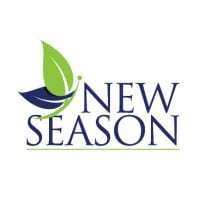
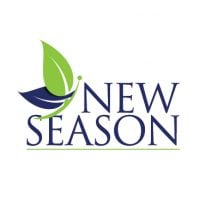


The facility name, logo and brand are the property and registered trademarks of Rivers of Hope, and are being used for identification and informational purposes only. Use of these names, logos and brands shall not imply endorsement. RehabNow.org is not affiliated with or sponsored by Rivers of Hope.

